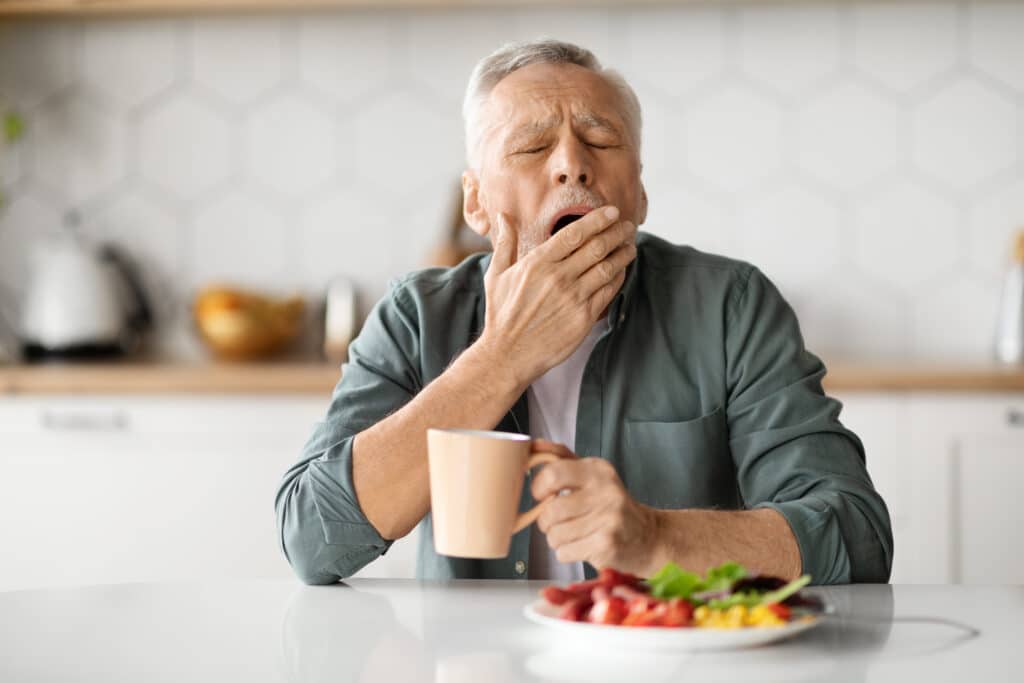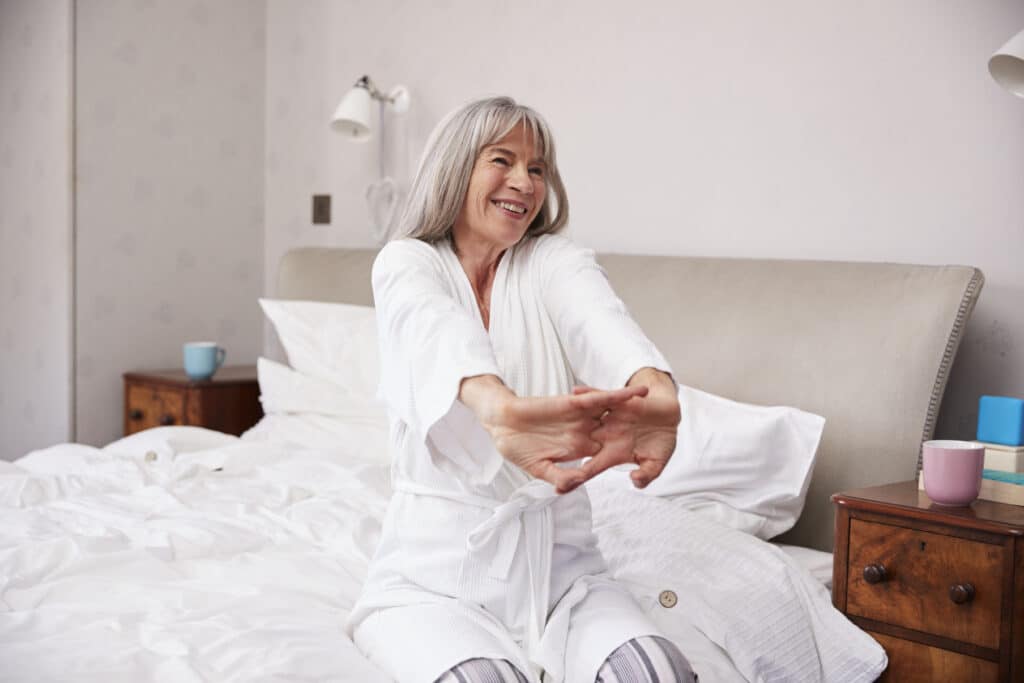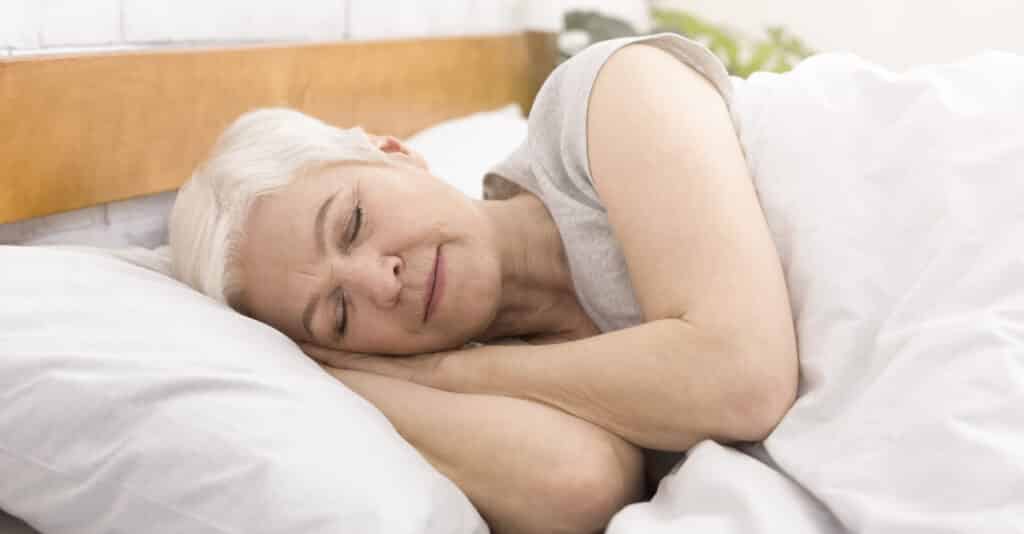Sleep, a crucial yet often neglected aspect of our health, significantly influences our physical well-being, mental acuity, and overall life quality. As a physical therapist, I’ve observed the substantial influence of sleep quality and duration on an individual’s health. This article will illuminate the significance of sleep, its effects on our health, and practical strategies to enhance our sleep habits for a healthier lifestyle.
We’ll also explore the fascinating science of sleep and the repercussions of sleep deprivation. Finally, we’ll provide practical advice about optimizing sleep.
Improving sleep habits extends beyond merely increasing the hours of sleep; it’s about acknowledging the profound role sleep plays in our lives and taking proactive steps to prioritize it.
So, let’s explore the world of sleep, its impact on our health, and how we can make the most of our nightly rest.
What Exactly Is Sleep?
Did you know that sleep isn’t just a passive state of rest? It’s an active and dynamic process that cycles through different stages, each with unique physiological characteristics.
The sleep cycle consists of two primary phases: Non-Rapid Eye Movement (NREM) sleep and Rapid Eye Movement (REM) sleep.
NREM sleep is divided into three stages: N1, N2, and N3. Each stage has unique characteristics and functions, from light sleep (N1) to deep sleep (N3).
REM sleep, often associated with vivid dreams, is when your brain is almost as active as when you’re awake.
Let’s take a closer look at these stages.
Stages of Sleep
Understanding the stages of sleep is like peeling an onion. Each layer reveals something new and essential.
N1, the first stage of NREM sleep, is a light sleep where you can be easily awakened. It’s like dipping your toes into the pool of sleep.
N2, the second stage, is a slightly deeper sleep. You’re less likely to be disturbed by external stimuli. It’s like wading waist-deep into the pool.
N3, the final stage of NREM sleep, is the deepest sleep. It’s the stage where the body repairs and regrows tissues, builds bone and muscle and strengthens the immune system. N3 sleep is like diving into the deep end of the pool.
Finally, REM sleep, the stage associated with dreaming, is when your brain consolidates and processes information from the day into your long-term memory.
Why Do We Need Sleep?

Physical Health Benefits
Sleep is not just a luxury; it’s a necessity. It’s the body’s way of conducting essential maintenance and repair work.
During the deep stages of sleep, your body is hard at work repairing damaged cells, rejuvenating your immune system, and restoring energy levels. It’s your body’s pit stop, where all the necessary tune-ups and repairs happen.
Mental Health Benefits
Sleep is also crucial for our mental health. During sleep, our brain sorts and stores the day’s experiences, converting them into memories.
Without enough sleep, your brain can’t effectively perform crucial tasks, leading to memory problems and difficulty concentrating.
Sleep is a complex process crucial to our physical and mental health. So, let’s dive deeper into understanding the importance of good sleep habits and how inadequate sleep might harm your overall health.
The Consequences of Sleep Deprivation
Sleep deprivation is more than just feeling groggy in the morning. It’s a serious condition that can have short-term and long-term effects on your health.
For active older adults, understanding these effects is crucial. A good night’s sleep isn’t just a luxury; it’s necessary to maintain a healthy, active lifestyle.
Short-term Effects
The immediate effects of sleep deprivation are noticeable. They can significantly impact your daily life, from your morning onward.
Here are some common effects you might notice after a poor night’s rest:
Cognitive Impairment
Lack of sleep can lead to cognitive impairment. You may struggle to concentrate, make decisions, or even remember things.
A study by the American Academy of Sleep Medicine found that even a single night of sleep deprivation can impair your cognitive function as much as legally defined levels of alcohol intoxication.1
Mood Changes
Have you ever noticed how you get cranky when you sleep poorly? That’s because sleep deprivation can cause mood changes. You may feel irritable, anxious, or even depressed.
This can strain work or personal relationships and make daily activities less enjoyable. Studies found a strong correlation between sleep deprivation and mood disorders.3
Long-term Effects
While the short-term effects of sleep deprivation are troubling, the long-term effects can be even more concerning. They can affect your daily routine, overall health, and longevity in alarming ways.
Chronic Health Conditions
Over time, lack of sleep has been associated with chronic health conditions like heart disease, diabetes, and obesity.3
The Centers for Disease Control and Prevention warns that adults who sleep less than seven hours each night are likelier to report several chronic health conditions.4
Mental Health Disorders
Sleep deprivation doesn’t just affect your physical health; it can also impact your mental health. Long-term sleep deprivation can lead to mental health disorders like depression and anxiety.
These conditions can make it difficult to enjoy life and maintain a positive outlook. Research has shown that people with insomnia are more likely to develop depression or other serious psychiatric disorders than those without sleep problems.
A good night’s sleep is vital to an active, healthy lifestyle. Let’s explore how we can combat sleep deprivation and improve our sleep habits.
How Much Sleep Do We Really Need?

Sleep, much like water and food, is a fundamental human need. But how much of it do we truly need? The answer to this question is more complex than you might think.
It varies significantly across different age groups and is influenced by various factors.
Sleep Requirements by Age
Sleep requirements change as we age.
Newborns and infants need the most sleep, clocking in at 14 to 17 hours daily. As children grow older, their sleep needs decrease gradually. School-aged children (6-13 years) typically require 9-11 hours of sleep, while teenagers (14-17 years) should aim for 8-10 hours.
The sleep sweet spot for active adults is 7-9 hours per night. However, as we age past 65, we may need less sleep — around 7-8 hours.
But remember, these are just averages. Some of us might need more or less sleep than the recommended amount, and that’s perfectly okay.8
Factors Affecting Sleep Needs
Several factors can influence how much sleep you need. Let’s dive into some of the most common ones.
Lifestyle Factors
Your lifestyle plays a significant role in determining your sleep needs. For instance, if you’re physically active, you might need more sleep to allow your body to recover.
Similarly, your sleep needs might increase if you’re stressed or traveling across time zones.
On the other hand, a sedentary lifestyle or excessive screen time, especially before bedtime, can disrupt your sleep patterns and reduce the quality of your sleep.
Health Conditions
Certain health conditions can also affect your sleep needs. For example, chronic illnesses like diabetes or heart disease often require more sleep. Mental health conditions like depression or anxiety can also disrupt sleep patterns and increase sleep needs.
It’s essential to listen to your body and give it the rest it needs. After all, a good night’s sleep is one of the best health investments you can make.
Now that we’ve covered the basics of sleep requirements and the factors that can influence them let’s discuss some practical tips and strategies to improve your sleep quality and overall health.
Strategies for Better Sleep
We all need sleep, but many active older adults struggle to get enough. Here are some strategies to get you started toward better sleep every night.
What is Sleep Hygiene?
Despite its name, sleep hygiene isn’t about whether you brushed your teeth before bed (though that’s important too!).
Sleep hygiene refers to your habits and practices surrounding sleep and rest. This can include anything from preparing your room appropriately to limiting electronic device use an hour or two before bed.
It’s about creating the right conditions and habits for a good night’s sleep. Here are some doctor-recommended sleep hygiene tips you can implement in your nightly routine.
Creating a Sleep-friendly Environment
It’s a good idea to think of your bedroom as a “sleep sanctuary.” It’s where you leave the day’s worries at the door and prepare your body for rest. Here are a few tips to make your bedroom more sleep-friendly:
- Darkness is your friend: Light tells your brain it’s time to be awake. So, when it’s time for sleep, ensure your room is as dark as possible. Blackout curtains or an eye mask can be a great help here.
- Keep it cool: A cooler room can help promote better sleep. The National Sleep Foundation recommends a bedroom temperature of around 65 degrees Fahrenheit (18.3 degrees Celsius).
- Noise can be a significant sleep disrupter. Use earplugs or a white noise machine to keep disruptive sounds at bay.
- Comfort is critical: Your bed should be a haven of comfort. A good mattress and pillows that support your body in a neutral position (where your spine maintains its natural curve) can make a big difference.
Establishing a Sleep Routine
Our bodies love routine, and sleep is no exception. Here are some strategies to help establish a sleep routine3:
- Consistency is key: Try to go to bed and wake up simultaneously every day, even on weekends. It helps train your body to follow a regular sleep schedule.
- Create a bedtime ritual. This could be anything from reading a book, taking a warm bath, or practicing deep breathing exercises. The key is to engage in relaxing activities that signal your body it’s time to sleep.
- Screen-free zone: The blue light emitted by screens can interfere with your sleep. Try to turn off these devices at least an hour before bedtime.
When to Seek Medical Help
Sleep is essential, but sometimes, despite our best efforts, we struggle to get the rest we need. That’s when it might be time to seek medical help.
Recognizing Sleep Disorders
Sleep disorders can significantly impact your health and quality of life. Here are some signs that you might have a sleep disorder4:
- Trouble falling or staying asleep
- Feeling tired or sleepy during the day
- Feeling the need to take naps during the day
- Feeling irritable or anxious
- Having trouble concentrating
- Feeling depressed
If any of these symptoms sound familiar, seeking medical help is essential.
Treatment Options
Treatment for sleep disorders can vary, but here are some simple options:
Cognitive-behavioral therapy helps you identify and change thoughts and behaviors that interfere with sleep.
Some sleep disorders may require prescription medications. But remember, it’s essential to discuss the benefits and risks with your doctor. Some over-the-counter options are also available, but you should discuss any new medicines with your doctor, as some may worsen your sleeping problems.
Regular exercise, a healthy diet, and reduced stress levels can all improve sleep quality. It’s also worth considering relaxation exercises like mindful breathing and other similar techniques before bed and throughout your day.
Remember, don’t hesitate to contact a healthcare professional if you’re struggling with sleep. They can help identify the root cause of your sleep issues and guide you toward the most effective treatment.
Key Takeaways
- Sleep is an active and dynamic process, cycling through different stages, each with unique physiological characteristics. It’s not just a passive state of rest.
- Sleep plays a crucial role in our physical and mental health. During deep sleep, our body repairs damaged cells, rejuvenates the immune system and restores energy levels.
- For our mental health, sleep helps our brain sort and store the day’s experiences, converting them into memories.
- Sleep deprivation can have both short-term and long-term effects on our health. Short-term effects include cognitive impairment and mood changes.
- In contrast, long-term effects can lead to chronic health conditions and mental health disorders.
- The amount of sleep we need varies significantly across different age groups and is influenced by various factors.
- The sleep sweet spot for active adults is 7-9 hours per night.
- Good sleep hygiene and a consistent sleep routine can significantly improve sleep quality. If you’re struggling with sleep, don’t hesitate to seek medical help.
FAQs
What is sleep, and why is it important?
Sleep is an active process where the body cycles through different stages, including NREM (Non-Rapid Eye Movement) and REM (Rapid Eye Movement) sleep. It plays a crucial role in physical and mental health by repairing damaged cells, rejuvenating the immune system, and improving cognitive functions like memory.
How many hours of sleep should I aim for each night?
Sleep needs vary depending on age, but most adults should aim for 7-9 hours per night. Older adults may need slightly less, around 7-8 hours.
What are the consequences of sleep deprivation?
In the short term, sleep deprivation can cause cognitive impairment, mood changes, and difficulty concentrating. Long-term sleep deprivation increases the risk of chronic health conditions like heart disease, diabetes, and mental health disorders such as depression and anxiety.
How does sleep affect my physical health?
During deep sleep, your body repairs and rejuvenates cells, builds muscle, strengthens the immune system, and restores energy levels, helping maintain overall physical health.
How does sleep affect my mental health?
Sleep is crucial for mental health because it allows the brain to process and store daily experiences, improving memory and cognitive function. A lack of sleep can lead to irritability, anxiety, depression, and impaired decision-making.
When should I seek medical help for sleep problems?
If you consistently struggle with sleep despite following good sleep hygiene, or experience symptoms like persistent fatigue, irritability, or difficulty concentrating, it’s a good idea to seek medical advice. A healthcare professional can help identify underlying issues and recommend treatment.
References
- National Institute of Neurological Disorders and Stroke. (2019). Brain Basics: Understanding Sleep. https://www.ninds.nih.gov/Disorders/Patient-Caregiver-Education/Understanding-Sleep
- Liew, S. C., & Aung, T. (2021). Sleep deprivation and its association with diseases- a review. Sleep Medicine, 77, 192-204. https://doi.org/10.1016/j.sleep.2020.07.048
- Harvard Medical School. (2007). Sleep, Learning, and Memory. Retrieved from http://healthysleep.med.harvard.edu/healthy/matters/benefits-of-sleep/learning-memory
- National Sleep Foundation. (2020). Why Do We Need Sleep?https://www.sleepfoundation.org/articles/why-do-we-need-sleep
- Walker, M. (2017). Why We Sleep: Unlocking the Power of Sleep and Dreams. Scribner.
- Centers for Disease Control and Prevention: Sleep and Sleep Disorders | CDC
- Hertenstein, E., Feige, B., Gmeiner, T., Kienzler, C., Spiegelhalder, K., Johann, A., Jansson-Fröjmark, M., Palagini, L., Rücker, G., Riemann, D., & Baglioni, C. (2019). Insomnia as a predictor of mental disorders: A systematic review and meta-analysis. Sleep Medicine Reviews, 43, 96-105. https://doi.org/10.1016/j.smrv.2018.10.006
- National Sleep Foundation. (2018). How Much Sleep Do We Really Need? https://www.sleepfoundation.org/how-sleep-works/how-much-sleep-do-we-really-need
- American Academy of Sleep Medicine. (2018). Sleep Education. http://www.sleepeducation.org/essentials-in-sleep/healthy-sleep-habits
- Centers for Disease Control and Prevention. (2018). Sleep and Sleep Disorders. https://www.cdc.gov/sleep/index.html
- National Sleep Foundation. (2019). Ideal Bedroom Temperatures for Sleep. Retrieved from https://www.sleepfoundation.org/articles/ideal-bedroom-temperatures-sleep
- Harvard Health Publishing. (2019). Blue light has a dark side. Retrieved from https://www.health.harvard.edu/staying-healthy/blue-light-has-a-dark-side
- American Sleep Association. (2020). Symptoms of Sleep Disorders. Retrieved from https://www.sleepassociation.org/about-sleep/symptoms-of-sleep-disorders/





